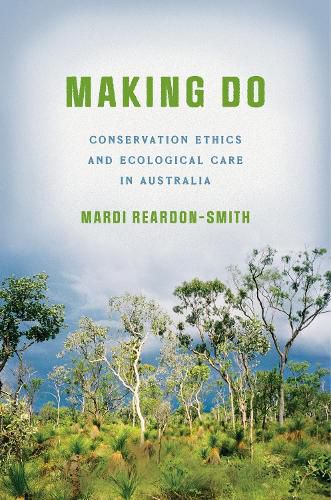Readings Newsletter
Become a Readings Member to make your shopping experience even easier.
Sign in or sign up for free!
You’re not far away from qualifying for FREE standard shipping within Australia
You’ve qualified for FREE standard shipping within Australia
The cart is loading…






Cape York is a remote and biodiverse peninsula in northeastern Australia that has been inhabited by Aboriginal communities for thousands of years. Since colonization, much of the peninsula has been used for large scale cattle farming. It is also a place of global significance as the site of multiple environmentally protected bioregions, with ongoing efforts to recognize them as UNESCO World Heritage Sites. Despite the very human role in shaping the landscape of Cape York, the region remains widely thought of as a "wilderness" to be conserved and protected. In this context, what counts as natural and native matters crucially-as does who gets to decide how species and people are categorized and, accordingly, how they are controlled.
Based on long-term field research with Aboriginal traditional owners, settler-descended cattle herders, and park rangers, Making Do investigates complex ways in which people form, maintain, and transform relationships to changing environments. How do we know the places in which we live, and how do we care for them among the ruptures created by forces like climate change, settler colonialism, and structural inequalities? To address these questions, Mardi Reardon-Smith traces issues such as the history of land tenure changes, the identification and control of weeds and feral pigs, and wildfires and Aboriginal cultural burning. Sprawling, messy, and sometimes violent, caring for land is not just about repair, restoration, or maintenance-rather, it is about bringing into being workable landscapes, livable worlds, and possible futures.
$9.00 standard shipping within Australia
FREE standard shipping within Australia for orders over $100.00
Express & International shipping calculated at checkout
Stock availability can be subject to change without notice. We recommend calling the shop or contacting our online team to check availability of low stock items. Please see our Shopping Online page for more details.
Cape York is a remote and biodiverse peninsula in northeastern Australia that has been inhabited by Aboriginal communities for thousands of years. Since colonization, much of the peninsula has been used for large scale cattle farming. It is also a place of global significance as the site of multiple environmentally protected bioregions, with ongoing efforts to recognize them as UNESCO World Heritage Sites. Despite the very human role in shaping the landscape of Cape York, the region remains widely thought of as a "wilderness" to be conserved and protected. In this context, what counts as natural and native matters crucially-as does who gets to decide how species and people are categorized and, accordingly, how they are controlled.
Based on long-term field research with Aboriginal traditional owners, settler-descended cattle herders, and park rangers, Making Do investigates complex ways in which people form, maintain, and transform relationships to changing environments. How do we know the places in which we live, and how do we care for them among the ruptures created by forces like climate change, settler colonialism, and structural inequalities? To address these questions, Mardi Reardon-Smith traces issues such as the history of land tenure changes, the identification and control of weeds and feral pigs, and wildfires and Aboriginal cultural burning. Sprawling, messy, and sometimes violent, caring for land is not just about repair, restoration, or maintenance-rather, it is about bringing into being workable landscapes, livable worlds, and possible futures.